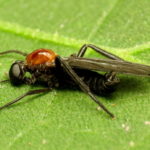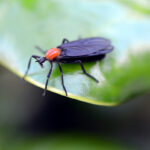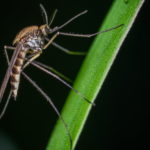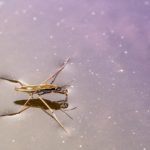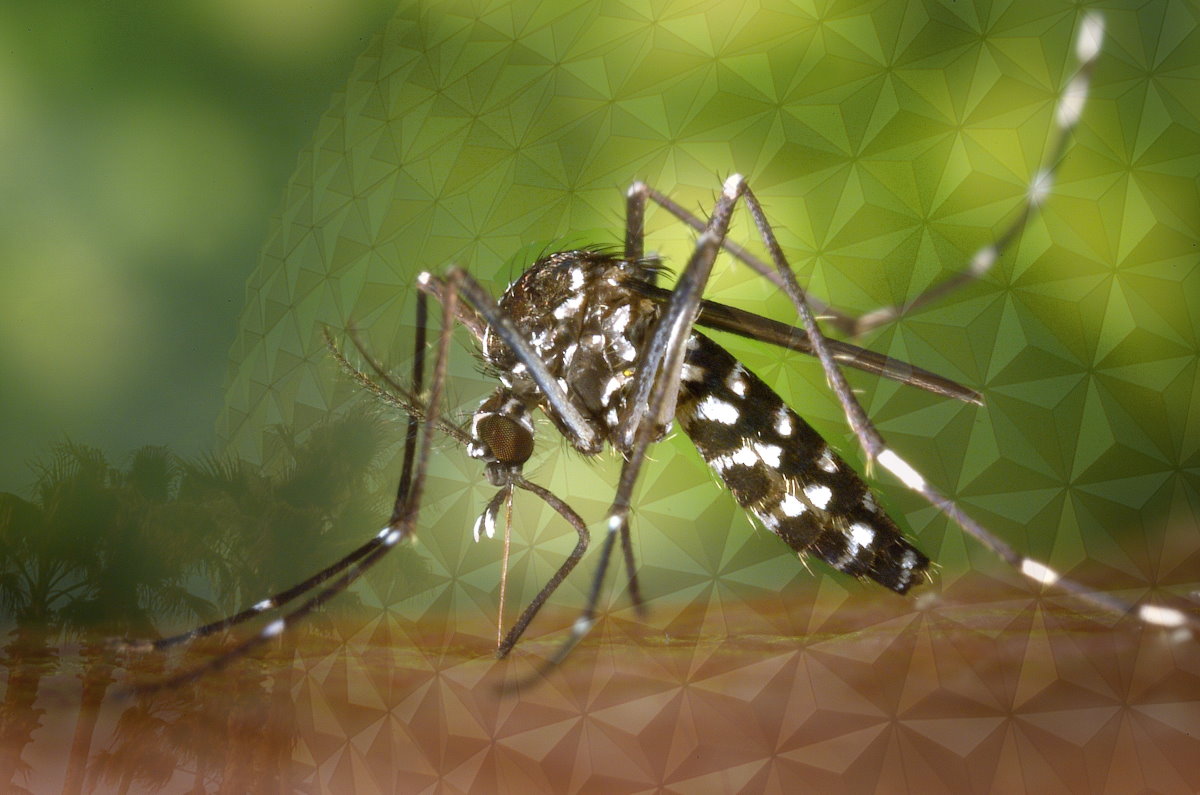
Mosquitoes love to call Orlando home. The hot, humid weather and long summer season mean mosquitoes flock to Central Florida in droves. Mosquitoes may be here to stay, but they don’t have to congregate in your backyard. Follow these simple tips to get rid of mosquitoes in your Orlando landscape:
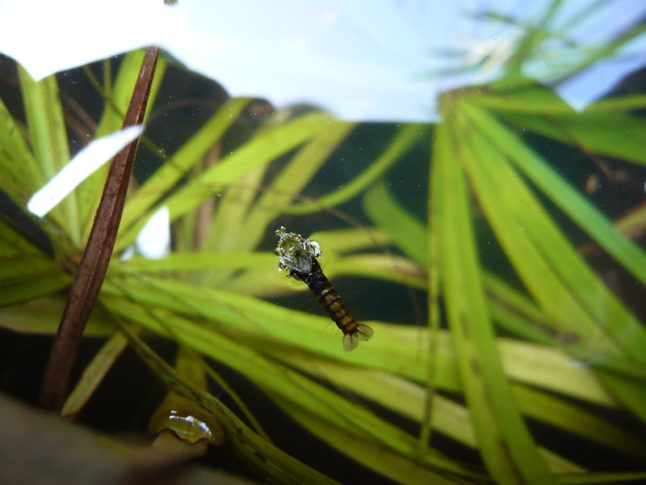
Photo credit: kafka4prez / Flickr / CC BY-SA 2.0
Before we get started, let’s take two seconds for a quick biology lesson. Mosquitoes go through four stages of life: (This will be important later on when we discuss how best to control them.)
- Egg
- Larva
- Pupa
- Adult
Depending on the species and temperature, this process can take from four days to one month, but many species reproduce in 7-10 days during warmer temperatures. Since warmer temperatures in Florida last from April through October, you’ll need to be especially attentive to mosquitoes in your yard during this time.
Note: The mosquitoes we’ll discuss in this article are “standing-water mosquitoes.” There is another group, floodwater mosquitoes, that lay eggs in moist soil (not standing water) and are the type that arises with a vengeance after hurricanes or floods.
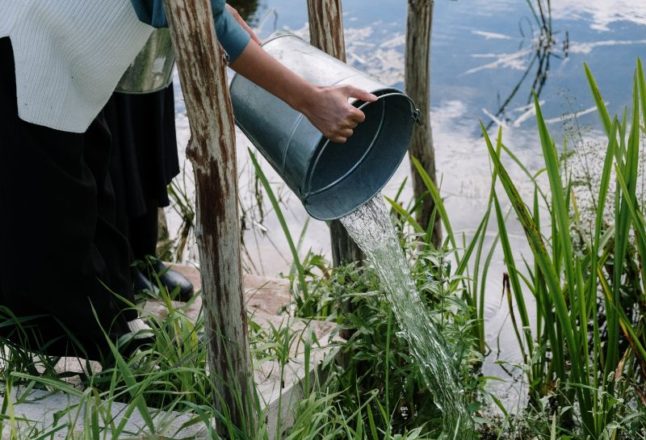
Empty the Water
Since mosquitoes lay their eggs in stagnant water, it’s wise to empty all standing water on your property. Female mosquitoes need only a bottle cap’s worth of water — or about 1 teaspoon — to lay their eggs. Eliminate sources of water in the lawn to ensure your property doesn’t become a mosquito breeding factory.
Don’t underestimate the impact of emptying standing water around the yard. Mosquitoes are prolific breeders. One female Culex quinquefasciatus mosquito may lay as many as 300 eggs at once. She’ll do this up to seven times in her six-week lifespan.
Consequently, simply getting rid of standing water will prevent thousands of these eggs from turning into adults and starting the cycle all over again.
Here are a few things in your yard and around your house that you’ll need to empty twice per week during the summer
- Bird baths
- Buckets – Even buckets that are turned over can collect water if they have a lip around the rim. Place them in a covered area to prevent this.
- Gutters – Clean them out to remove clogs and standing water
- Kid and pet pools
- Pet water bowls
- Plant saucers
- Tires (or drill holes in them so water doesn’t collect in the first place)
- Water-holding plants: bromeliads, bamboo, fallen leaves, and palm spathes (Yes, even a single leaf can hold enough water for a mosquito to lay her eggs!)
Pro Tip: Who has time to empty containers of water twice per week? The solution: Do a cleanup. Take old tires to a recycling facility, place unused buckets in a shed, and place pots on the ground so there’s no need for a saucer that will retain water after a rainstorm.
Cover Containers
If you don’t want to empty certain items such as kiddie and pet pools, cover them instead.
Here are a few items that you can cover to prevent mosquitoes from laying their eggs there.
- Cisterns and drums
- Gutters – Cover with leaf guards to keep debris out and prevent clogs
- Kiddie and pet pools
- Plumbing pipes that come out of the ground
- Rain barrels
- Septic tanks
- Tree cavities — Fill with expandable foam to prevent water from collecting inside.
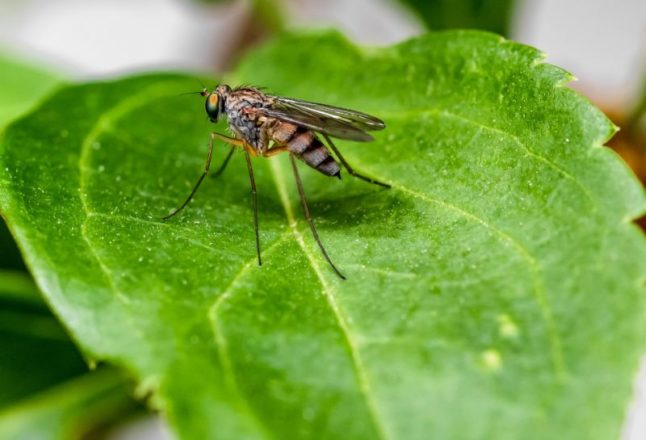
Get Rid of Mosquito Larvae and Adults
It may not be possible to eliminate all standing water from your yard. And you’ll still encounter some adult mosquitoes despite your best efforts.
Here are ways to kill larvae and adult mosquitoes in your lawn:
How to get rid of mosquito larvae
A key way to control mosquitoes in Orlando is to treat standing water with a larvicide. Larvicides are insecticides that kill mosquitoes in the larval stage to prevent the mosquito eggs from developing into pupae or adults.
One common larvicide is Bacillus thuringiensis subspecies israelensis or Bti for short. Bti is a bacteria that is often used by organic farmers, is safe when used according to the label, and has been used to control mosquitoes for over three decades. Better yet, you can probably find it at your local big box store, and it’s very easy to find online. It’s available in dunks, granules, liquid, and other forms.
Here are a few places where Bti granules, dunks, or other larvicides can be used to treat standing water:
- Bird baths: Yes, Bti is safe for use with bird baths
- Ditches
- Open rain barrels
- Plants such as bromeliads (Sprinkle granules in the water-holding area of the plant.)
- Puddles or areas of pooling water in the lawn (A permanent drainage solution is advisable for long-term control.)
- Tires (until you can get them to the recycling center)
How long do larvicides last? It depends on the product. Bti granules may need to be applied as often as every 7 days in peak season, while dunks last about 30 days.
How to get rid of adult mosquitoes
Here are a few ways to control the adult mosquito population in your lawn:
- Keep grass and weeds trimmed to an appropriate height. (Adult mosquitoes rest in dark, moist, cool areas during the day, including overgrown vegetation.)
- Remove debris and overgrowth against the side of the house (or contact an Orlando LawnStarter landscaping pro to do this for you).
- Leave space in-between bushes and your home.
- Spray foundation plantings and shaded areas against the home with an adult insecticide (aka adulticide).
- Spray other cool, shaded areas, such as underneath lawn furniture.
- Use a thermal fogger for short-term control (such as before an outdoor event).
- Spray your lawn with an organic or safe chemical insecticide.
FAQ About How to Get Rid of Mosquitoes in Orlando
According to the University of Missouri (UM), ultraviolet bug zappers are not an effective long-term control solution for adult mosquito populations, nor do they reduce mosquito bites in an area.
UM also notes that there is no evidence that ultrasonic pest eliminators deter mosquitoes from an area.
Ask an Orange County Extension agent whether carbon dioxide traps work for the type of mosquito species in your area.
If you want to learn more about carbon dioxide traps, check out LawnStarter’s article: Carbon Dioxide Mosquito Traps — Do They Really Work?
Here are a few strategies to manage mosquitoes in Orlando ponds and water gardens:
• For small container water gardens, run the hose over the container to flush out any larvae that float along the top. (Do this every few days during summer.)
• Aerate ponds by adding a pump
•Stock ponds with native, mosquito-eating fish (These not only eat mosquito larvae, but they keep the water moving as well.)
And if you want to keep these little buggers away when you and your family are swimming, see our article about “5 Ways to Keep Mosquitoes Away From Your Orlando Pool.”
In short, they can be. A mosquito bite may transmit the parasite that causes heartworm in dogs. Ask your veterinarian about the best way to test for and prevent heartworm in your dog.
In addition to heartworm protection, be proactive about controlling mosquitoes on your property using the steps above to reduce the number of mosquitoes your dog will encounter.
Other ways to protect your dog from mosquitoes:
• Screen in your dog’s kennel to keep adult mosquitoes out.
• Ask your vet about canine-safe insect repellents or spot treatments.
No one likes a party crasher, especially bugs that sting and bite. In addition to the tips we’ve listed above, take these precautions to further prevent pesky skeeters from sucking the life out of your next outdoor event:
Use a fan
Mosquitoes aren’t great at flying against strong winds, so bring a few fans outdoors to keep the area mosquito-free.
Provide guests with repellents
Individually wrapped insect wipes and mosquito repellents are a thoughtful touch and something bite-prone guests will appreciate.
Hire a professional mosquito control service
Even after you’ve done all that you can, you may want to call in a pro to prepare for a special event. Many pest control companies in Orlando offer one-time mosquito treatments to help rid your outdoor space of these biters before a backyard gathering.
If mosquitoes have overtaken your lawn, take back your castle, and call in a pro. Pest control pros in Orlando have the experience, expertise, and equipment to help local homeowners reduce larval and adult mosquito populations in their Central Florida lawns.
Main photo credit: Pixabay / Pexels | Mike McBey / Flickr / CC BY-SA 2.0

